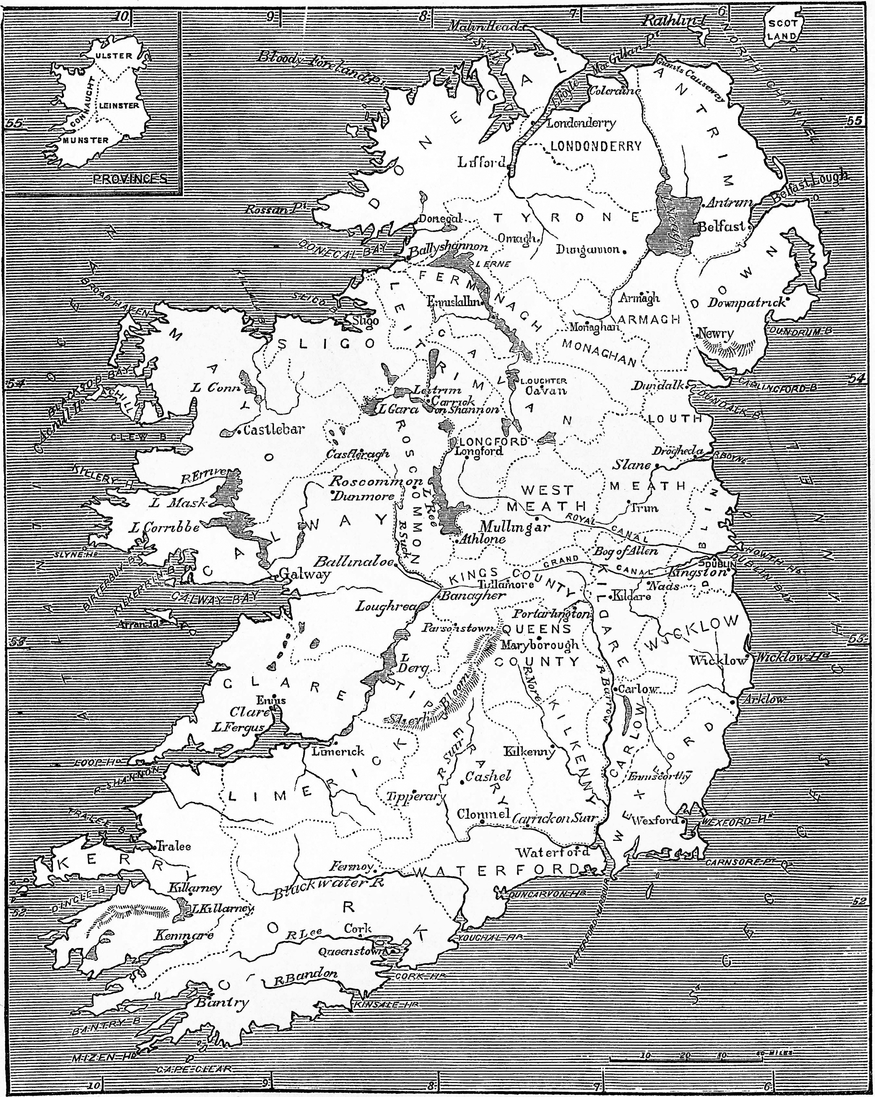Harriet Martineau and the Irish Question
Harriet Martineau and the Irish Question
Condition of Post-famine Ireland
Edited by Deborah A. Logan
LEHIGH UNIVERSITY PRESS
Bethlehem
Published by Lehigh University Press
Co-published with The Rowman & Littlefield Publishing Group, Inc.
4501 Forbes Boulevard, Suite 200, Lanham, Maryland 20706
www.rowman.com
Estover Road, Plymouth PL6 7PY, United Kingdom
Copyright 2012 by Deborah A. Logan
All rights reserved. No part of this book may be reproduced in any form or by any electronic or mechanical means, including information storage and retrieval systems, without written permission from the publisher, except by a reviewer who may quote passages in a review.
British Library Cataloguing in Publication Information Available
Library of Congress Cataloging-in-Publication Data
Harriet Martineau and the Irish question : condition of post-famine Ireland / edited by Deborah A. Logan.
p. cm.
Includes bibliographical references and index.
ISBN 978-1-61146-096-4 (cloth : alk. paper)ISBN 978-1-61146-097-1 (ebook)
1. Martineau, Harriet, 18021876Criticism and interpretation. 2. Martineau, Harriet, 18021876Political and social views. 3. IrelandSocial conditions19th century.
PR4984.M5Z667 2012
823'.8dc23
2011042209

The paper used in this publication meets the minimum requirements of American National Standard for Information Sciences Permanence of Paper for Printed Library Materials, ANSI/NISO Z39.48-1992.
Printed in the United States of America
Contents
Preface
Introduction
Harriet Martineaus Irish Writings
A Note on the Texts
| 6 | Once a Week : An Illustrated Miscellany of Literature, Art, Science, and Popular Information |
Further Reading
Bibliography
Index
About the Author
Preface
Harriet Martineau admitted that she was perplexed by those whose Irishism was uppermost. Despite evidence to the contrary, she was convinced that the Irish would eventually see nationalism in its proper lightthrough the lens of the British Empireand leave off agitating for Union Repeal and independence. For postcolonial and postmodern readers, this conviction lends a special cast to her writing about Irelandone of the primary topics she addressed during a long and prolific career. Yet, while puzzled by Irishism, Martineau was also a vigorous critic of Britains mismanagement of Ireland and cannot simply be dismissed as a thoroughgoing imperialist. Indeed, her role as a sociopolitical commentator in Victorian print media is far more complex and nuanced, as the articles in this collection reveal.
Martineaus first writing about Ireland was the Illustrations of Political Economy didactic-fiction tale, Ireland (1832), followed by History of the Thirty Years Peace (18491851). For Londons Daily News , she wrote Letters from Ireland (1852), a record of her tour assessing post-famine conditions, and Endowed Schools of Ireland (1858) on education reform. In addition to another thirty-eight articles for Daily News (18521866), she produced fourteen papers for Household Words , Atlantic Monthly , Once a Week , Westminster Review , Edinburgh Review , and New York Evening Post . It is those fifty-two uncollected articles that are the focus of this study and that complement Martineaus earlier work by providing additional commentary on Irelands post-famine reconstruction period. The articles in this collection chart the course of economic and social progress in terms of industry, public works, economy, emigration, education, prison reform, and agriculture. They also record intensified Irish nationalist activism in America and Ireland, as well as links between the two; finally, they explore the question of Irelands political representation and its role in shaping the New World while reshaping the Old during this crucial preindependence period.
Points revealed by this study include Martineaus unshakeable optimism about the economic and social recovery of post-famine Ireland, her steady refusal to consider repeal of the Union a viable option for remedying its troubles, and her insistence that Irelands problems stemmed from social, rather than political, causes. Treating social issues as the primary ailment and politics as merely a symptom, Martineau provides important insights into the challenges facing Irelandand imperialist attitudes toward those challengesas the country transitioned from a feudal society into a modern, independent nation during the empires great expansion and swift demise.
Introduction
Given the intellectual authority of her Illustrations of Political Economy (18321834), which prompted MPs and statesmen of various political persuasions to consult her on pending reform issues, it is uncertain to what extent her periodicals writing about post-famine Ireland generated a similar impact. What is certain is that Martineaus literary reputation and sharp sociopolitical analyses, dispensed through the periodical press, cast her as a key voice for popularizing the distinctly unpopular Irish issues of the period.
Descended from exiled French Huguenots who settled in Norwich, and the daughter of a middle-class textile manufacturer, Martineau was comparatively (if informally) well educated and exceptionally well read in a wide range of topics and disciplines; a Unitarian, she had access to many of the leading intellectuals and reformists of the period. Triply marginalized as a religious dissenter and an unmarried, intellectual woman with literary aspirations, her primary orientation privileged practical social reform over theological dogma and political partisanship; she endeavored not only to understand the socioeconomic causes of chronic poverty and social problems but to promote viable solutions to remedy them. This inclination was consistent not only with Unitarianism but also with the spirit of an age marked by scientific progress and religious doubt; self-reliance, primarily through education, was her standard panacea for social and economic troubles.
Regarding imperialism and its critique, Martineau was as vigorous in her condemnation of Englands mismanagement of Ireland as she was in her rejection of the Union Repeal movement. She condemns the cultural annihilation and sociopolitical irresponsibility of British imperialism yet maintains that Irelands problems can be resolved by strengthening, rather than dissolving, the Union. While she promotes Ireland for the Irish, as she later promotes India for the Indians, she seeks to do so through maintaining the imperial framework. This crucial distinction raises various questions: does her advocacy of preserving and strengthening the Union make her an unequivocal imperialist? Does her critique of British policy make her an anti-imperialist? How are we to evaluate the work of a writer who embraces seemingly incompatible positions? In terms of religion, culture, and politics, constructing a plausible reconciliation of her eclectic views is the challenge Martineaus writing poses to scholarly analysesa reconciliation this study aims to facilitate.

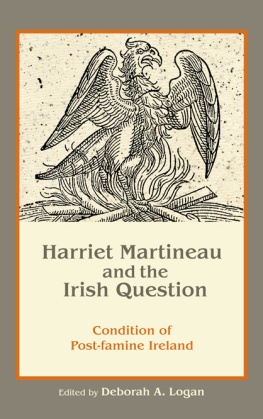
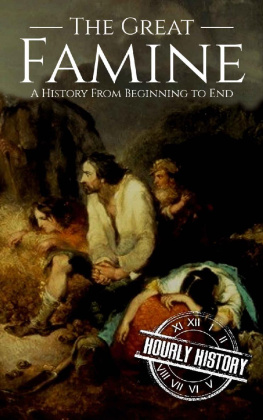
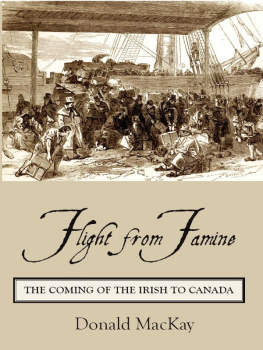
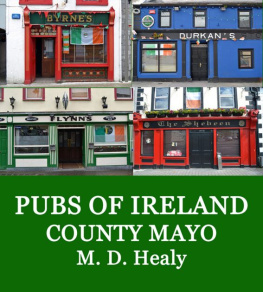

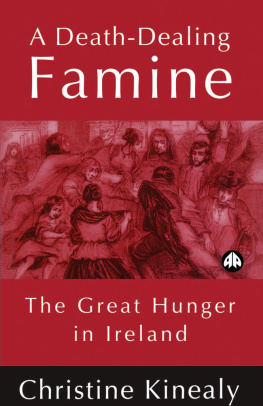
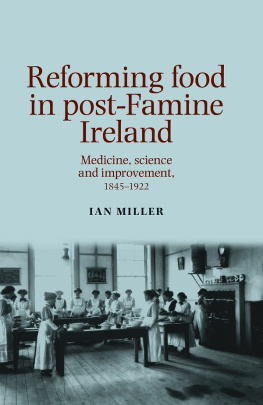
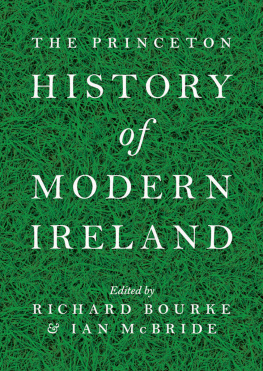
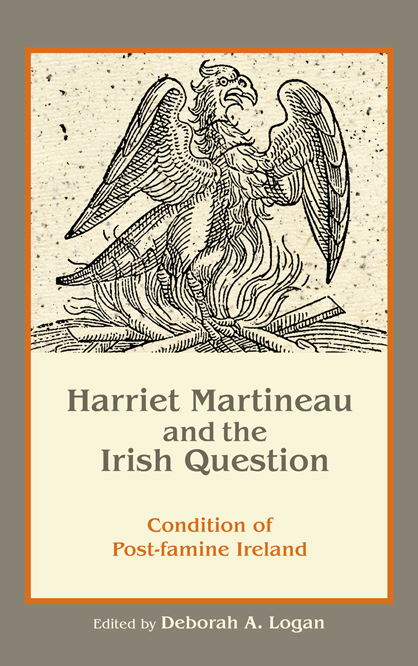
 The paper used in this publication meets the minimum requirements of American National Standard for Information Sciences Permanence of Paper for Printed Library Materials, ANSI/NISO Z39.48-1992.
The paper used in this publication meets the minimum requirements of American National Standard for Information Sciences Permanence of Paper for Printed Library Materials, ANSI/NISO Z39.48-1992.